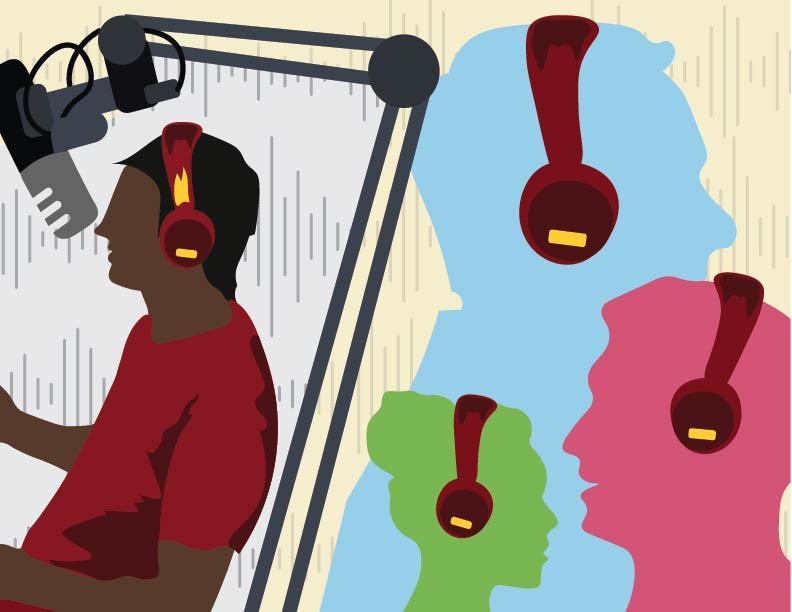Gabriel Foster got into activism somewhat accidently.
Growing up 20 miles away from Seattle in the ’90s, Foster said he felt “a world away” from LGBTQ spaces and community. As a teenager, Foster would make a two and a half hour bus ride into the city where he and two friends would sit on the sidewalk of a historically gay neighborhood. Even though they were too shy to interact with those who walked by, they would sit and watch day after day before eventually busing home again.
Now an activist in Seattle and a founder of a community foundation that distributes grants to trans activist groups around the country, Foster is one of five activists featured in a podcast recently published in a University of Minnesota oral history project. The podcast was made in collaboration with the Jean-Nickolaus Tretter Collection, the largest archive of LGBTQ-specific material in the upper Midwest.
Created almost entirely by trans and gender non-conforming people, “Transcripts” is centered around the multi-faceted experiences of trans activists. Discussing topics like workplace discrimination, visibility in the media, community engagement and the idea of “liberation,” the podcast draws from over 200 interviews that have been collected since 2015.
Cassius Adair, the podcast’s lead producer, said one of the goals of “Transcripts” was to bring the oral history collection out of the “ivory tower” of academia and make it more accessible to a broader audience. Through the medium of a podcast, trans activists can tell their stories in their own words, using the cadence of their own voices to connect with listeners in a way that cannot be done with a book or article, Adair said.
“Our stories aren’t often told from our own voices,” said Rickke Mananzala, a New York activist featured on the podcast. “They’re often told for us.”
Many on the podcast talked about how they often felt pigeonholed or gate-kept to behave, speak or act in a certain way and criticized how traditional media outlets can fall into assumptive narratives and stereotypes.
“When we saw trans people in the news, and they put a mic in their face, they were just talking about the bathroom bills,” said Houston activist Diamond Stylz. “We didn’t talk about housing disparities, we didn’t get to talk about workforce discrimination, we didn’t get to talk about the Medicare for all situation – we didn’t get to talk about those things even though they affect us.”
In capturing a variety of voices and opinions, the podcast brings in trans perspectives from all areas of the country, featuring guests from the South, the Midwest and both coasts.
“Sometimes you can’t wait to be invited to the table, you have to create your own damn table,” Foster said.
Although the interviews were recorded before the recent civil unrest and COVID-19 pandemic, Adair said the timing of the release reaffirmed the importance of their work.
Some of the audio he used from a New York march in 2017 sounded like it could have been taken yesterday. Cheers of “Black Trans Lives Matter” and “No justice, no peace” sound in the transitions as activists talk about police violence and systemic racism, topics many of them have spent decades dismantling.
Reflecting on the Civil Rights Movement of the 1950s-60s and the Black Lives Matter movement today, Stylz said it is important to look at social justice leadership now and make sure activists and policymakers are centering and amplifying Black trans voices.
In the past it has been Black activists who have been leading change, and “it’s time [to] look at us as resources instead of victims,” she said.
For some of the activists, the idea of liberation means more than just visibility in mainstream media, but also transformation. Stylz said she wants to see a society with livable wages, access to clean water, public healthcare and a place where everyone’s needs, including those of marginalized people, are taken care of.
“I don’t know if that’s possible in my lifetime,” she said. “I’ve been passing the torch. So I want to take the torch and run it as far as I can until I die, so that the next person can pick it up and run it as far as they can.”








